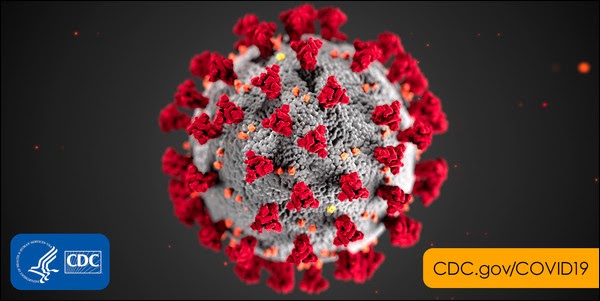| Previous
Page |
PCLinuxOS
Magazine |
PCLinuxOS |
Article List |
Disclaimer |
Next Page |
From The Chief Editor's Desk |
|
In and around 1918, the Spanish Flu pandemic hit the world. More people were killed by the Spanish Flu than were killed in World War I. In fact, many WWI scholars and researchers credit the end of WWI to the Spanish Flu pandemic, more so than the fighting and stagnant battle lines of the war. Now, scarcely 100 years later, the world is staring down the barrel of another potential global pandemic. While the World Health Organization (WHO) has not yet (at the time of this article's writing) declared it to be a pandemic, the novel coronavirus-19 (COVID-19) is about as close to a global pandemic as you can get without an "official" pandemic being declared by health officials. You can visit the WHO's COVID-19 page here, as well as a special Q&A page they have created just for this virus. The 20th Century ushered in an era of international travel that had been largely unavailable to the general population previously. With WWI, that made the spread of Spanish Flu easy. Troops who were fighting might return home, sometimes across a vast ocean, and unknowingly spread the illness to friends and family back home. Replacement troops would be sent to the front lines, sometimes unaware that they even had the illness, and spread it among their fellow soldiers and the general population of the towns they visited. It literally was a two way street when it came to the spread of the Spanish Flu. Today, international travel is rather routine, which makes the spread of a new virus exceptionally difficult to contain.  With COVID-19, its symptoms are rather vague. Its incubation period seems to range anywhere from one to 14 days, with five days being the most common. People can spread the virus via airborne droplets before they even start to show symptoms or even know themselves that they are sick. Symptoms include respiratory symptoms, fever, cough, shortness of breath and breathing difficulties. In more severe cases, infection can cause pneumonia, severe acute respiratory syndrome, kidney failure and even death. I can tell you that as a healthcare professional, COVID-19 scares me like nothing else ever has during my 30-plus year career -- and I have dealt with a LOT of patients with nasty, nasty infections over that time. There's a lot of disinformation going around out there, like comparing the numbers of people who die from the seasonal flu every year to the number of people who have died (so far) from COVID-19. But there are a few telling pieces of information that are omitted from that comparison. First, we are accustomed to dealing with the seasonal flu outbreaks each year, so we rather know what to expect and how to treat it. Second, we are very, very early in the COVID-19 outbreak, so of course the numbers are going to be lower for COVID-19 than for any sampling of the seasonal flu over the years. Third, and probably the most telling bit of information, is the mortality rate for each. The annual seasonal flu rate has a mortality rate of right around 0.1 percent. COVID-19 has a mortality rate of somewhere between one and two percent. That's 10 to 20 times higher mortality for COVID-19 than for the annual seasonal flu outbreaks. And I've seen more than my share of patients who succumb to the annual seasonal flu. I can't even imagine how much nastier COVID-19 will be.  Of course, the disinformation doesn't stop there. Coronaviruses are zoonotic, meaning they are transmitted between animals and people, and COVID-19 has never been seen in humans until now (hence the "other" name you often hear, novel coronavirus). Coronaviruses have also been identified as the source of SARS and MERS outbreaks in the past recent years. Initial reports out of China (the point of origin) points to either seafood sold in the open-air markets, or to a snake that is sold there for meat. But there has been plenty of speculation as to whether or not that report is accurate. It has been reported that China maintains a biological weapons lab in Wuhan, China, (THE "hot zone" for this outbreak) and some have speculated that COVID-19 "escaped" from that bioweapons lab. It's likely we'll never really know the true origin of COVID-19, principally because no one will know which version of which story to believe. The non-transparent nature of the Chinese government and society, coupled with the purposeful concealment of the truth by the state-run Chinese media (government) complicates the issue exponentially. I'm not going to rehash everything you can do to prevent the spread of COVID-19, or what to do if you develop symptoms. There are better references than my monthly "welcome" column in The PCLinuxOS Magazine. What I can do, however, is provide you with some direction in your search for reliable, sound information. Knowledge is power, so you owe it to yourself, your loved ones, your friends, and those who must be around you out of necessity, to empower yourself. Meanwhile, scientists around the world are working at a feverish rate (pardon the unintentional pun) to develop a sound treatment course, and to search for a possible vaccine. The Israelis have reported some of the best advancement in the search for the latter, having already spent years working with the coronavirus in their quest for a vaccine for an infectious form of viral bronchitis. The impact from COVID-19 has permeated many far reaching aspects of society. People are hoarding and panic-buying disinfectant wipes and solutions, hand sanitizer, masks of all kinds, and just about anything else that they think may help them combat a possible COVID-19 infection. The major tech giants ... Twitter, Google, Facebook, and many more ... are canceling appearances at trade shows, asking workers to telecompute, and otherwise restricting travel for their employees in the wake of the outbreak. One new website, created by TC Sottek, the executive editor of The Verge website, lists events that have been canceled due to the coronavirus outbreak. It's called, uniquely enough, isitcanceledyet.com. Some of the entries are humorous and tongue-in-cheek (and who couldn't use a little humor in this situation). To get a good feel for the significant impact that the COVID-19 outbreak is having on the tech community, check out this article on TechRepublic. So, I've already linked to the WHO websites earlier in this article. But, to keep everything together, we'll relist them below with the other resources. How does the new coronavirus compare with the flu? (LiveScience) Has Covid-19 mutated into a more deadly strain? Busting the coronavirus myths (The Guardian) Coronavirus Disease 2019 (COVID-19) (CDC) Global Bio Defense: COVID-19 (USAMRIID) I'm sure you can find other resources, but these should get you well on your way to finding the information you need to keep yourself safe. Closer to home, we have PCLinuxOS members in China, including Archie, one of our forum's moderators. We wish each of them good health and safe passage through this growing world crisis. Until next month, I bid you peace, happiness, serenity, prosperity ... and good health. |

